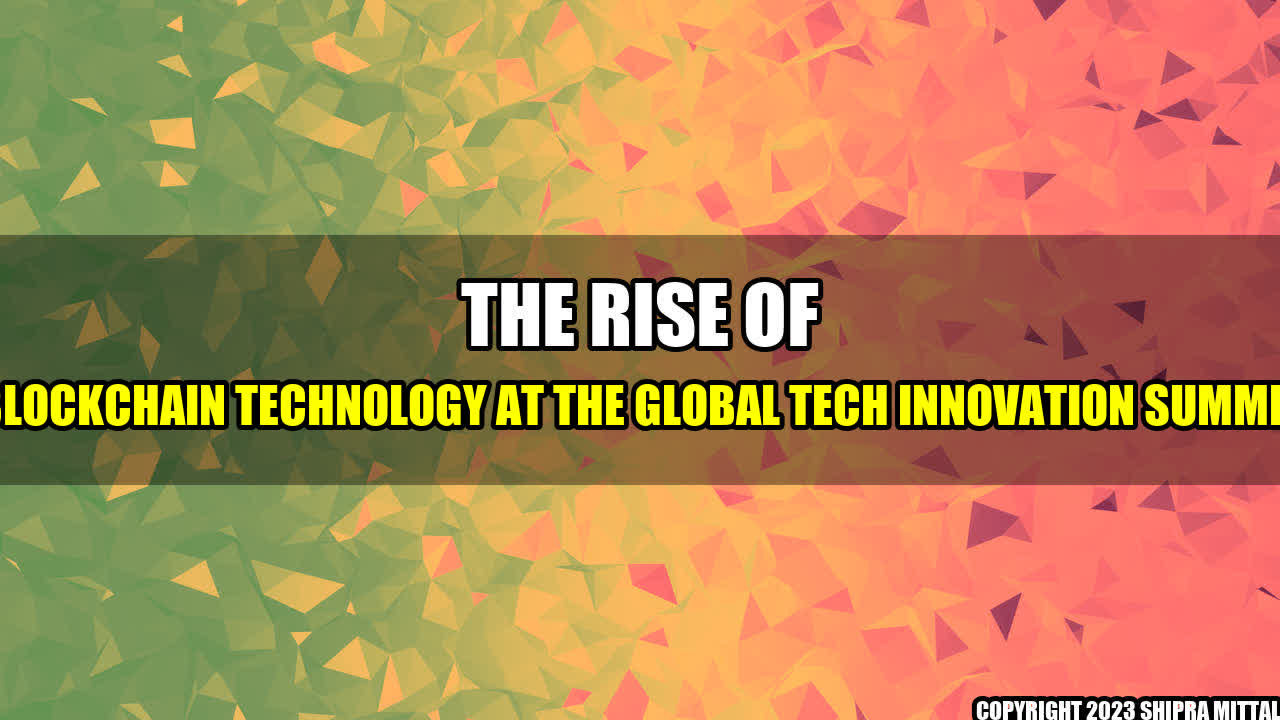
Once upon a time, there was a man named Satoshi Nakamoto who had a dream of creating a currency that was not controlled by any government or company. His dream became a reality when he invented Bitcoin, a decentralized digital currency that has changed the world of finance forever.
Bitcoin and other cryptocurrencies are powered by blockchain technology, a distributed ledger system that records transactions and stores data in a secure and transparent manner. Blockchain is now being explored and applied in various industries, from healthcare to supply chain management and beyond.
The global tech innovation summit held earlier this year in San Francisco showcased the latest advancements in blockchain technology and its potential to revolutionize industries and create new business models.
Blockchain technology is already being adopted by major companies and institutions around the world. For example, IBM is using blockchain to track the origin of food products, while Walmart is using it to improve its supply chain management.
According to a report by Gartner, blockchain technology will add $3.1 trillion in business value by 2030. This is due to the fact that blockchain can improve transparency, security, efficiency, and cost-effectiveness in various industries.
One of the most promising applications of blockchain is in the field of healthcare. According to a report by Deloitte, blockchain can reduce the administrative costs of healthcare by up to $150 billion per year in the US alone. This is because blockchain can streamline the sharing of patient data between healthcare providers and other stakeholders, while ensuring the privacy and security of sensitive information.
As blockchain technology continues to evolve, its potential to disrupt various industries becomes even more apparent. For example, blockchain can enable peer-to-peer transactions without the need for a middleman, such as a bank. This can significantly reduce transaction fees and improve financial inclusion, particularly in developing countries where traditional banking services may not be available or affordable.
Blockchain can also enable the creation of decentralized autonomous organizations (DAOs), which are run by smart contracts rather than traditional hierarchies. This can enable more efficient decision-making processes and greater transparency in organizational governance.
Another potential application of blockchain is in the field of voting. By using blockchain, it may be possible to create a secure and transparent system for conducting elections. This can reduce the risk of fraud or hacking, while ensuring the privacy and integrity of the voting process.
In conclusion, blockchain technology is rapidly evolving and has the potential to revolutionize various industries. Here are three key takeaways from the Global Tech Innovation Summit:
Akash Mittal Tech Article
Share on Twitter Share on LinkedIn